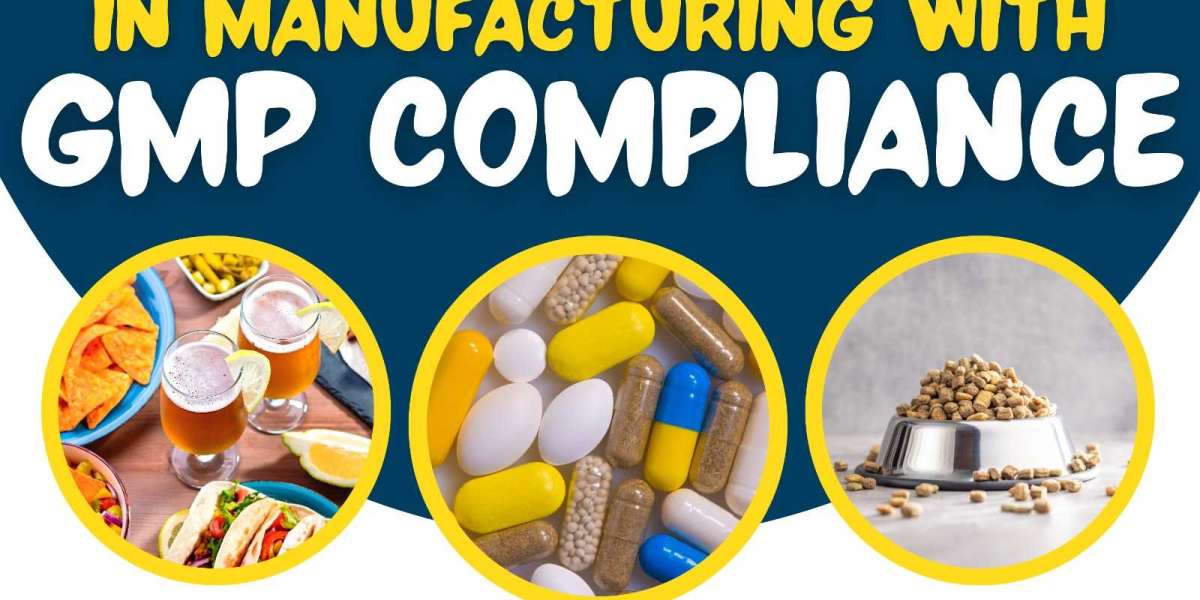GMP Certification in Bangalore is a cornerstone of quality assurance in industries such as pharmaceuticals, food, cosmetics, and medical devices. It encompasses a set of guidelines designed to ensure that products are consistently produced and controlled according to quality standards. The ultimate goal is to safeguard the health and well-being of consumers by minimizing the risks involved in any pharmaceutical production that cannot be eliminated through testing the final product.
Here are the key principles of GMP that every manufacturer should follow:
- Quality Management
Quality must be built into the product from the beginning. GMP emphasizes the importance of a comprehensive Quality Management System (QMS) that integrates all processes, documentation, and personnel involved in the manufacturing process. A strong QMS ensures consistency, accountability, and the ability to trace any deviations or defects.
- Sanitation and Hygiene
Cleanliness is non-negotiable in GMP environments. Facilities must maintain high standards of hygiene to avoid contamination, which includes clean equipment, proper waste disposal systems, and regular sanitation schedules. Personnel must also follow strict hygiene practices, including wearing appropriate protective clothing and undergoing health checks when necessary.
- Controlled Environmental Conditions
Manufacturing must take place in controlled environments that are designed to minimize the risk of contamination or errors. This includes temperature control, humidity regulation, and air filtration systems. For instance, cleanrooms in pharmaceutical plants are maintained with HEPA filters and positive pressure to keep contaminants out.
- Clear and Accurate Documentation
GMP relies heavily on documentation. All manufacturing processes, from raw material procurement to product distribution, must be clearly documented and readily available for review. This ensures traceability and accountability and helps identify and correct any deviations promptly. “If it isn’t documented, it didn’t happen” is a widely accepted mantra in GMP compliance.
- Validated Processes and Equipment
Processes must be validated to demonstrate that they consistently produce products meeting their intended quality standards. Similarly, equipment must be regularly calibrated and maintained to ensure reliability and accuracy. Validation reduces the risk of batch failures, product recalls, and customer complaints.
- Competent and Trained Personnel
Staff must be properly trained in their respective roles and understand the principles of GMP. Ongoing training programs are essential to keep personnel updated with new technologies, regulations, and industry best practices. Competent staff are the first line of defense against human error.
- Complaint Handling and Recall Systems
A robust system must be in place to handle customer complaints and product recalls efficiently. The ability to trace defective products and withdraw them from the market quickly is vital for consumer safety and brand reputation.
- Regular Audits and Continuous Improvement
Self-inspections and internal audits help identify areas for improvement and ensure continued compliance with GMP regulations. Manufacturers must implement corrective and preventive actions (CAPA) based on audit findings to enhance product quality and operational efficiency.
For manufacturers in Bangalore seeking to achieve compliance, accessing professional GMP Services in Bangalore is a strategic move. These services typically include audits, validation support, training programs, and documentation assistance tailored to specific industry needs.
Acquiring GMP Certification in Bangalore provides a significant competitive edge in both domestic and international markets. It assures customers and regulators that the manufacturer meets stringent quality standards. Certification is often a prerequisite for exporting products or entering new markets, making it a valuable asset for growth-oriented businesses.
Working with experienced GMP Consultants in Bangalore ensures that companies receive expert guidance through the complex regulatory landscape. These consultants assist in designing compliant facilities, implementing QMS systems, conducting training, and preparing for inspections. Their industry-specific knowledge can save time, reduce costs, and enhance compliance outcomes.
In conclusion, adhering to GMP principles is not just a regulatory requirement but a commitment to excellence. Whether you're a startup or an established manufacturer, investing in GMP practices—and leveraging professional support available in Bangalore—can significantly elevate your product quality, safety, and global competitiveness.


